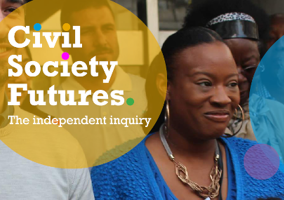Given the shiny gold numbering on the cover of this month’s issue, subscribers will be aware that we have reached a milestone: the 250th issue of Charity Finance.
We’re very proud to have been producing this magazine for 28 years now, and intend to continue doing so for many more to come.
For those of us who worked with the magazine’s late founder Daniel Phelan, there is a particular sense of responsibility. His fondness for this publication and desire to maintain high standards of quality and rigour was evident for all to see. His goal of supporting and improving financial management in charities remains our goal.
However, that is not say that we must always stay the same. Changes in technology, the economy, cultural norms, language and not least the charity sector that we write about all make it incumbent upon us to constantly challenge the way that we work.
The same can also be said of the charity sector. Most (if not all) of today’s successful charities can trace their origins back to the vision and drive of an inspirational founder or group of founders.
A strong understanding of the goals and ethos of these forefathers and foremothers helps to guide the actions of the charity today.
Yet as Julia Unwin’s recent Civil Society Futures inquiry has pointed out, the charity sector must change and adapt to the sweeping changes that are currently taking place in the world. While I don’t particularly share the concern of those who fear the charity sector will become irrelevant and wither away, there is no doubt that if charities are to be as effective as they can be, they must respond to the currents of modern society.
Unwin’s report offers some good pointers for how to do this. Notably, her extensive research revealed a feeling of powerlessness among people and communities across the country.
She calls on charities to open up their leadership at every level to different genders, ages, ethnicities and more. To allow funding decisions to be made by those whom it is meant to support. To facilitate locally designed and delivered public services. To share power.
It must be said that for a good portion of the charity sector, this goes against their history. Many a charity has been built on the generosity of a wealthy benefactor with a top-down vision for helping those in need.
Yet the sense of disengagement and cynicism that many people now hold for those running our society impels all of our organisations, including charities, to think hard about more inclusive ways of operating.
Gareth Jones is editor of Charity Finance
Related articles










